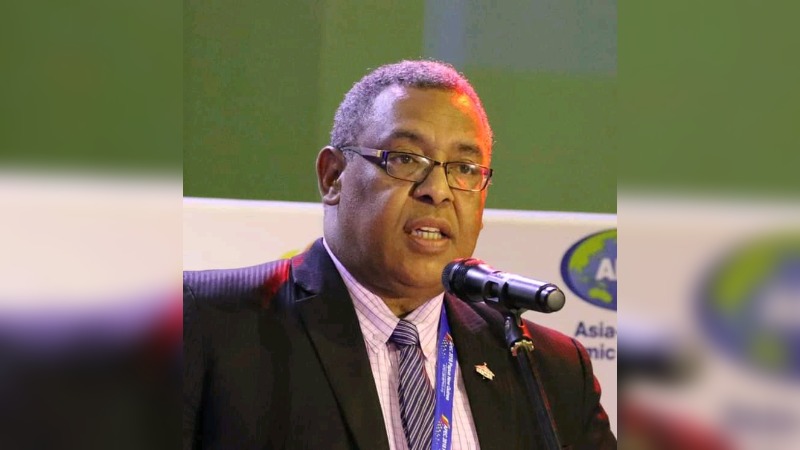The Department of Prime Minister and National Executive Council (NEC), along with the Prime Minister’s Office, has officially relocated to Somare Haus in Waigani.
This move marks a major step in the government’s long-term strategy to centralize key government offices within the Waigani Precinct, aiming to enhance coordination and reduce operational costs.
Chief Secretary to Government, Ivan Pomaleu, in a statement, says the consolidating of offices into Waigani is expected to generate significant savings by reducing rental costs.
These savings will be used to cover the costs of constructing Somare Haus over the next 10 to 15 years.
“Consolidating government offices into Morauta Haus and Sir Manasupe Haus will generate savings from reduced rental costs, which would be used to fund the costs of construction of Somare Haus over a 10 to 15-year period,” Chief Secretary Pomaleu explains.
The move is part of a broader government plan to improve the efficiency and collaboration between the Executive, Judiciary, and Legislature. By centralizing these key arms of government in one area, the government hopes to streamline operations and foster closer communication between departments.
“This move of offices from Sir Manasupe Haus is a key part of our strategy to streamline Government operations and foster closer coordination between the Executive, Judiciary, and Legislature,” Chief Secretary Pomaleu stated.
He further emphasized that centralizing government offices is crucial to improving the functionality and productivity of national departments.
The relocation also focuses on improving security within Waigani.
The close proximity of the three arms of government—Executive, Judiciary, and Legislature—will strengthen security measures around critical national landmarks such as Independence Hill, the National Museum, National Library, and the National and Supreme Courts. Surveillance cameras will be installed, and strict rules against loitering, littering, and betel nut chewing will be enforced to maintain the integrity of the area.
“With all these critical national institutions in one location, we will significantly enhance security with surveillance cameras, enforce strict rules against loitering, littering, betel nut chewing, and spitting, and undertake landscaping projects that reflect the stature of our nation’s capital. These efforts are part of repositioning Waigani as the central hub of Papua New Guinea, looking beyond 50 years of independence.”
Pomaleu also referenced past incidents where the security of key government offices was compromised. He cited the 1997 Sandline Crisis, the 2011 political standoff, and the 2018 attack on Parliament as examples where the proximity of government institutions could have strengthened security measures.
Most recently, he mentioned the January 2024 attack on Sir Manasupe Haus.
“The proximity of the three arms of government not only enhances our security measures but also ensures that future prime ministers recognize they are not above the judiciary or Parliament.”
“All three arms must work in harmony to serve our nation.”
However, the relocation to Somare Haus will also see consultations taking place for the official renaming of Melanesian Haus to Somare Haus.
Chief Secretary Pomaleu emphasized that discussions will be held with the Somare family before the renaming, which is planned to coincide with the anniversary of Sir Michael Somare’s passing.
“The late Grand Chief Sir Michael Thomas Somare, the father of our nation, currently has no major office building named in his honor. I believe it is fitting that the Office of the Prime Minister and National Executive Council (NEC) should carry his name as a lasting tribute to his legacy.”
This relocation and renaming initiative are key parts of the government’s vision to build a more integrated and cohesive administration within the Waigani precinct, making it a central hub of the nation’s administration, looking ahead to a unified and efficient future for Papua New Guinea.

